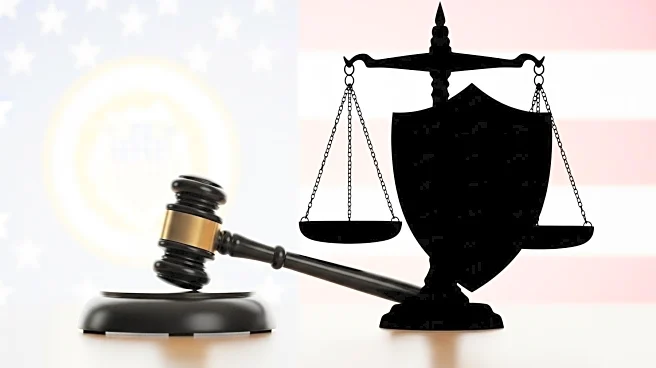What is the story about?
What's Happening?
The state of Illinois, along with the city of Chicago, has filed a lawsuit against President Trump's administration to prevent the deployment of National Guard troops from Illinois and Texas. This legal action, initiated by Illinois Attorney General Kwame Raoul, seeks to block the federalization and deployment of these troops, which the White House claims is necessary to protect federal immigration personnel and facilities amid increased deportation activities. The lawsuit, filed in federal court in Chicago, argues that the deployment infringes on Illinois's sovereignty and could lead to social unrest and economic harm. The legal challenge comes after Defense Secretary Pete Hegseth authorized the deployment of 400 National Guard troops from Texas to Illinois, Oregon, and potentially other states.
Why It's Important?
This legal battle highlights the ongoing tension between state and federal authorities over immigration enforcement and the use of military resources. The deployment of National Guard troops for immigration purposes raises questions about state sovereignty and the appropriate use of military force within U.S. borders. The outcome of this lawsuit could set a precedent for how similar situations are handled in the future, potentially affecting the balance of power between state and federal governments. Additionally, the deployment could impact community relations and economic activities in the affected areas, as the presence of federalized troops may lead to increased mistrust and decreased business and tourism activities.
What's Next?
The federal court's decision on this lawsuit will be closely watched, as it could influence future actions by the Trump administration and other states facing similar federal interventions. If the court sides with Illinois, it may limit the federal government's ability to deploy National Guard troops without state consent. Conversely, a ruling in favor of the administration could embolden further federal actions in states that oppose the president's policies. Stakeholders, including state governments, civil rights organizations, and immigration advocates, are likely to respond based on the court's ruling, potentially leading to further legal challenges or policy changes.
Beyond the Headlines
The legal challenge also underscores broader issues of federalism and the role of the military in domestic affairs. The use of National Guard troops for immigration enforcement raises ethical and legal questions about the militarization of domestic policy and the potential for civil liberties violations. This case could prompt a reevaluation of the legal frameworks governing the deployment of military forces within the United States, particularly in contexts that involve contentious political issues like immigration.
















